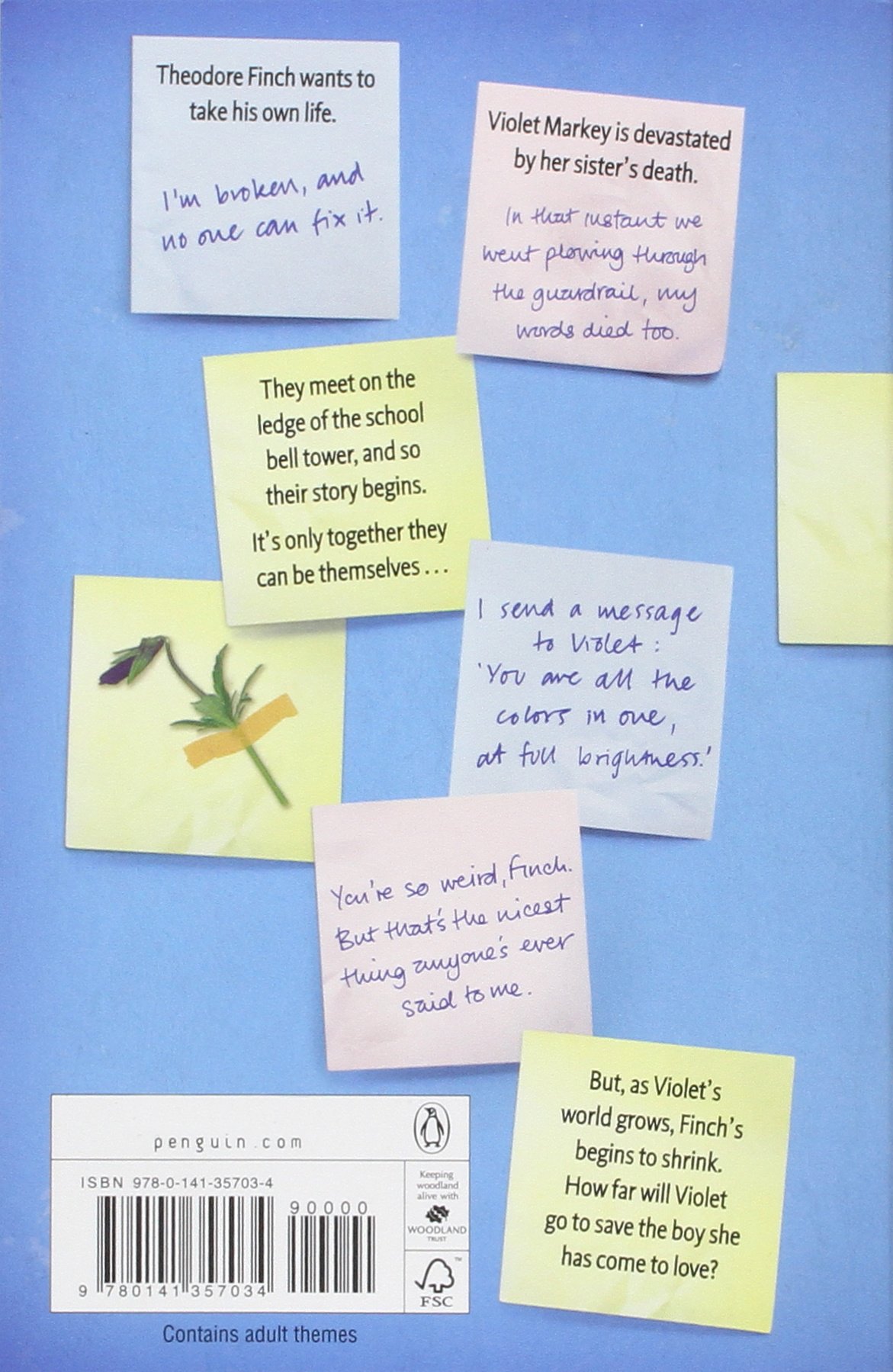About Me

Hii, I'm Dishika Mehta, a college student with dark academia aesthetic and a serious problem of escapism!
A literary blog that takes you a journey through the books I've read and how they've left a lasting impact: an exuberant amalgamation of the learning experiences that they bring and how living vicariously can teach you so much about life- the undeniably complex yet beautiful adventure.
"The thing I realize is that it's not what you take, it's what you leave."

All the Bright Places is hands down one of the most perplexing yet hard-hitting novels I've ever read. The book takes us through the lives of Theodore Finch, a young boy who struggles with multiple mental health disorders and Violet Markey, a formerly popular girl who put herself through social exile after her sister, Eleanor's death. After a fateful encounter at the school bell tower where Finch saves Violet from jumping off, their lives entangle in a dance of keeping each other afloat and saving each other from getting sucked into the vortex of trauma, loss, guilt and depression.
"Sometimes, Ultraviolet, things feel true to us even if they're not."
Finch doesn't prefer labels and likes to dwell in smaller spaces as they bring him a sense of security and familiarity. And isn't that what we all crave in a way? It made me ponder about the purpose of associating ourselves in smaller groups, making ourselves vulnerable only to selective people. Even the idea of letting ourselves be expressive of our intimate thoughts knowingly or unknowingly, puts us in a state of intermittent panic, but that's not the case with 'our' people. And Violet answers to the definition of 'our' people to perfection:
"I guess you can be yourself, whatever that means- the best and the worst of you. And they love you anyway. You can fight, but even when you're mad at them, you know they're not going to stop being your friend."
"Growth itself contains the germ of happiness. Maybe a germ is enough. Maybe it's all you need."
"Because our mountain is waiting....I think I've got a map in my car that wants to be used, and I think there are places we can go that need to be seen. Maybe no one will ever visit them and appreciate them or take time to think they're important, but maybe even the smallest place can mean something to us. At least by the time we leave, we know we've seen it, this great state of ours. So come on. Let's go. Let's count for something. Let's get off that ledge."
Finch and Violet are very conflicting in a way, the former romanticizes death whereas the latter is terrified at the idea of oblivion, dearth and paucity it brings with it. But by the end of the book, it all culminates to just one thought:
"We do not remember days, we remember moments."

What are some small things/ moments that make life worth living? Let me know in the comments and let's make this small space a reminiscence of all things radiant and blissful. Thanks you for reading and see you back next week!